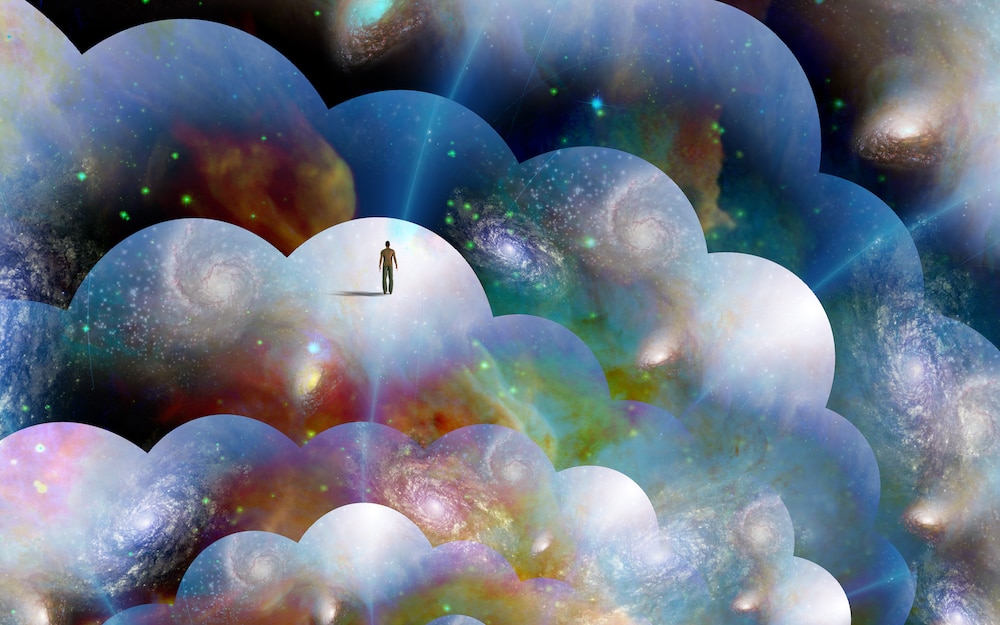Create a free profile to get unlimited access to exclusive videos, sweepstakes, and more!
Was our universe really made for intelligent life, or could it spawn anywhere?
Your mind is about to get blown... like, whoa.

We think we stand out. So far, we haven’t been able to find any other planet or moon where life emerged, never mind intelligent life — but we could be wrong.
Is the universe really find-tuned for life as we know it? That is a question that can even blow the minds of theoretical physicists, but the parameters which were thought to be necessary for life (and intelligence with it) to exist might not be as precise as they were previously assumed to be. Some will argue that there is no way a universe that spawns life can exist if you mess with so much as just one subatomic particle. Then there are those who look far beyond that.
Life-forms, even intelligent ones, could have emerged under drastically different conditions from what we are used to. Maybe we exist in a multiverse where there are many universes that can each birth life in their own way. Theoretical physicist Miriam Frankel recently published a report, supported by the John Templeton Foundation, for the Foundational Questions Institution (FQXi) that might read like science fiction to you if you’ve never considered possibilities outside of this version of the cosmos. Her colleagues Fred Adams of the University of Michigan and David Sloan of the University of Lancaster can back it up.
“The possible parameter space for studying alternate universes is enormous,” Adams told SYFY WIRE. “To provide a complete description, one has to re-do all of physics for each possible type of universe, so it's not surprising that many topics still have so many open questions.”
Back up for a moment. What even is intelligent life? Humans are suddenly not so special if the definition of intelligence is bent this way or that. Sloan thinks there are various forms and levels of what we call “intelligence” in animals. Then what about less advanced organisms that hardly have any semblance of a brain, if they have nerves at all, but somehow are able to form complex structures that move as one? Would you call that intelligence? It is possible that life evolved to reach Homo sapiens status only because our planet has been around so long. Or not.
“It's quite difficult to distinguish conditions for 'life' from those for 'intelligent life,' particularly as you have to be very careful what you mean by “intelligent,” Sloan said.
No matter how you define intelligence, there is one thing which constantly keeps coming up, and that is that the properties of astrophysics aren’t nearly as important to a universe that can function as the properties of particle physics are. There are scientists out there who will still argue that screwing with the mass of a quark will make the entire cosmos fall apart. The thing is, potential universes are more flexible than that. Adams thinks it is possible that hypothetically changing the universe means you would just get more obvious relative changes by adjusting the masses of quarks or muons than, say, changing how much dark matter is lurking in the void.
“As long as the properties of fundamental particle physics allow for stable protons, neutrons, and larger nuclei, then astrophysics, as a general rule, will find a path to construct them,” he said.
So what does it really take for a universe to operate in a way that allows life to form and thrive? The new theoretical findings detailed in Frankel’s study, which have now sparked some heavy discussion, have widened the range of those parameters immensely, though you might be surprised to find out that the parameters remain finite. It’s kind of like finding the breaking point of a substance, or that experiment in which researchers shot tardigrades out of a gun to see how much force they could take and still crawl out alive. Sloan, who edited the book Fine-Tuning in the Physical Universe, sees fine-tuning as pushing values as far as you can.
Say you need X and Y to get a universe in which there are living organisms; X and Y can be anything, from heat to light to water or those complex organic molecules that astrobiologists keep searching for to see if they could be a sign of extraterrestrial life. So you have a value of X, but the existence of X depends on the value of Y. You can’t theoretically have X around if Y goes past a certain value. Because of this, Y has to be fine-tuned to the upper or lower limit of X.
“From that we either want to explain how Y got this value from a more fundamental theory, or invoke an explanation like a multiverse where Y has different values in different places and so we're bound to find one where it's in the right region for life,” Sloan said.
This isn’t something that is going to be figured out anytime soon. It could, however, spark a sci-fi movie to make your head explode.


























